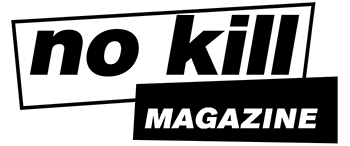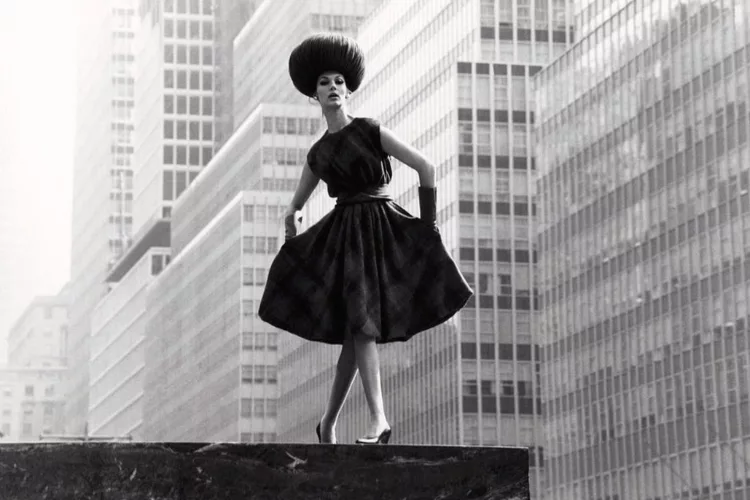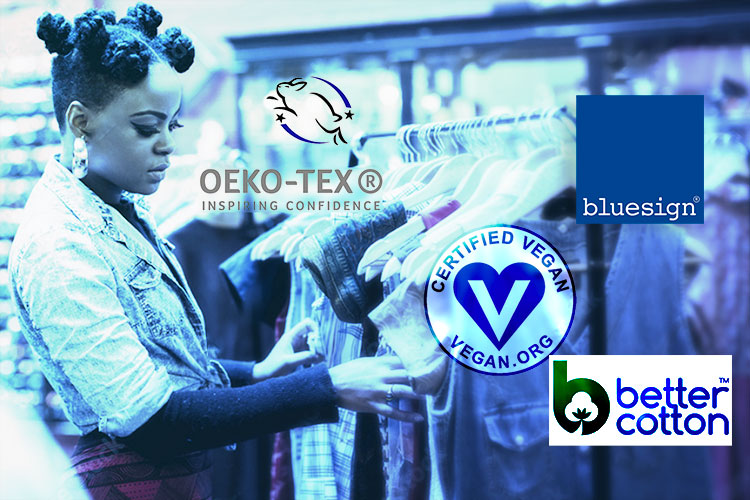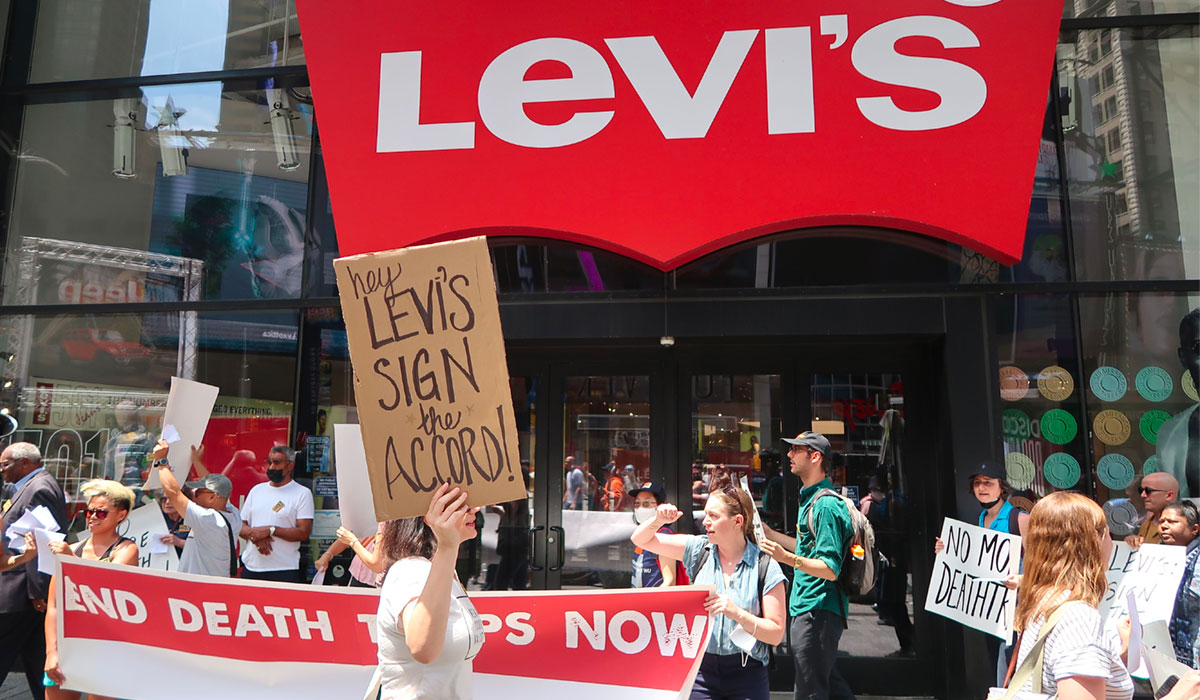
The International accord protects the lives of bangladesh’s garment workers. Levi’s refuses to sign on.
On June 24th, fashion force-for-good Remake joined renowned Bangladeshi trade union leader Kalpona Akter and Edgar Romney from Worker’s United. The event was a demonstration held at the Levi’s store in Times Square to protest Levi’s refusal to sign the International accord. They were joined by United Students Against Sweatshops, Model Alliance, Remember the Triangle Fire Coalition and other allies.
Why the Accord Matters
It’s been 9 years since 1,132 died at Rana Plaza. And nearly one year since the International Accord for Health and Safety in the Textile and Garment Industry – the most successful workplace safety program in modern fashion history – was renewed and expanded into an international agreement. Under the Accord, Bangladesh’s brutal history of garment factory deaths has been halted. And although 170 other brands – including Uniqlo, Zara, adidas, and H&M – support the new International Accord agreement, Levi’s has refused to sign. This threatens to undermine the progress that’s been made.
As a company that prides itself on sustainability in action and living its values, Levi’s has a responsibility to sign the International Accord and ensure safe workplaces for the workers in its supply chain. No worker should have to risk their life in order to go to work.” stated Edgar Romney of Workers United.
Demonstrators entered the Levi’s store carrying signs and chanting as Akter delivered a letter to management. Predictably, management refused to engage in talks with Akter, or acknowledge the brand’s refusal to sign on. Undeterred, the demonstrators took up outside of the store, continuing their calls for Levi’s to sign The Accord and be part of the movement dedicated to garment workers’ rights and safety since 2013.
“Levi’s says its own worker safety program is effective, and yet we know from Rana Plaza that voluntary, brand-led worker safety programs are lethal. Every day that Levi’s refuses to sign, garment workers’ lives are on the line and their demands are ignored.” – Elizabeth Cline, Advocacy and Policy Director at Remake.
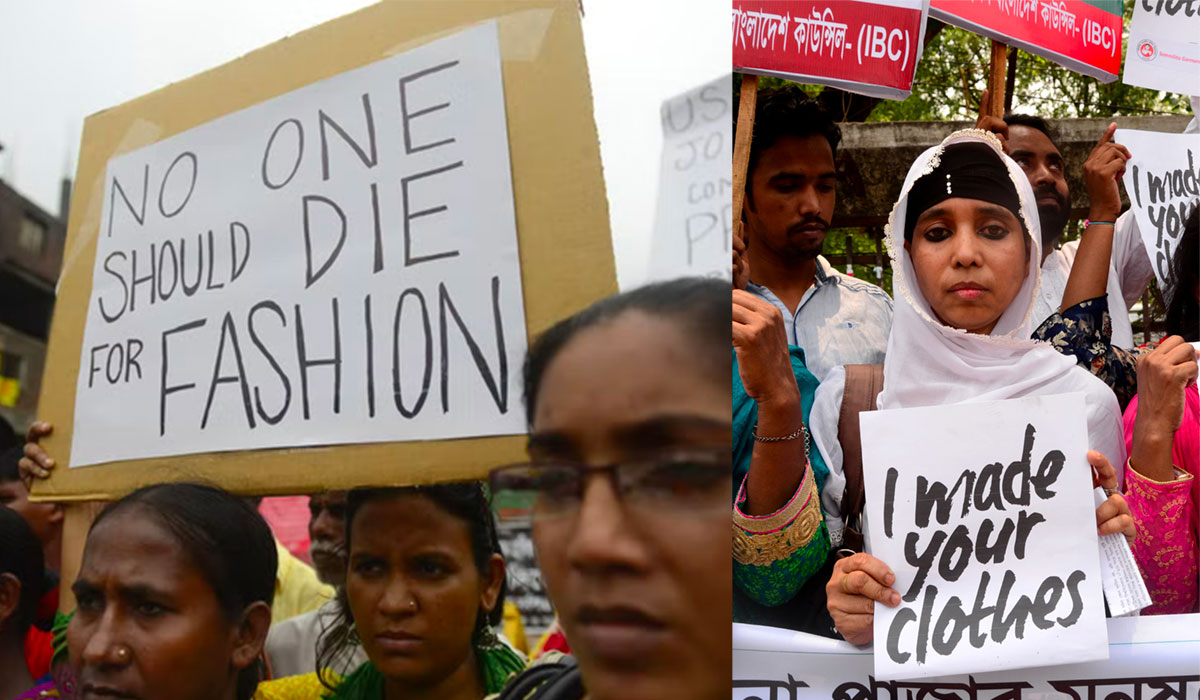
Levi’s sources from at least 21 factories in Bangladesh. Some have lingering safety issues, including fire risk, according to a recent investigation by the Clean Clothes Campaign. What’s more, the denim behemoth manufactures clothing in an Accord factory precisely because these factories are safer – ultimately free-riding off the efforts of others. By refusing to sign on, Levi’s is ultimately sabotaging the power and expansion of this historic, effective and legally binding safety agreement.
“Levi’s is dangerously behind the curve when it comes to making garment factories safe places to work. […] It is well past time for Levi’s to sign the Accord and ensure the safety of their workers.”
– Kalpona Akter, President of Bangladesh Garment and Industrial Workers Federation
How You Can Help Put Pressure ON Levi’s
Remake has rallied our global community to email Levi’s executives calling on them to sign the Accord. More than 400 emails have been sent to date, but clearly, we need more.
The company’s claims on its commitment to ethical supply chains are nothing more than lip-service until it signs the Accord. In a world where complacence is a matter of life and death, it’s well past time for Levi’s to step up and sign on.
CLICK here for an auto-populated letter to send Levi’s management
-By Caroline Jenkins
RELATED ARTICLES
Remake’s Fashion Accountability Report –What it is and Why You Should Read it
Why I Signed the Fashion Declares Open Letter
Getting Schooled on Sustainable Fashion
5 Books to Increase Your Sustainable Fashion Knowledge
In conversation with journalist + fashion activist Elizabeth Cline
